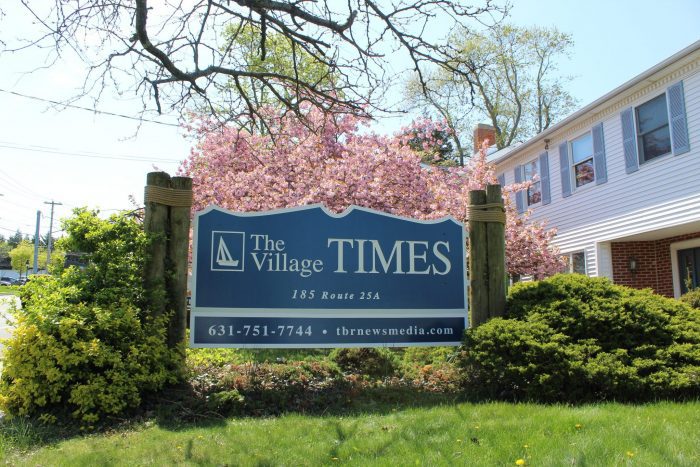Letters to the Editor: November 21, 2024
Letter to Gov. Hochul on delayed FEMA reimbursements for Stony Brook University Hospital by Suffolk County Executive Ed Romaine
Since 2022, Stony Brook University Hospital, including Stony Brook Southampton Hospital, Stony Brook Eastern Long Island Hospital and Stony Brook Children’s Hospital, Long Island State Veterans Home and Stony Brook University have been actively engaged with SUNY and the Division of Budget in submitting claims totaling over $195 million for reimbursement from the Federal Emergency Management Agency pursuant to the Robert T Stafford Disaster Relief and Emergency Assistance Act (the Stafford act) after the nationwide emergency declaration for the COVID-19 pandemic. Per FEMA, this act provides for “eligible emergency protective measures taken to respond to the COVID-19 emergency at the direction or guidance of public health officials may be reimbursed under Category B of FEMA’s Public Assistance program.”
Stony Brook University Hospital, et al., have submitted thousands of eligible expenses and documentation for reimbursement for 100% federal cost for expenses incurred prior to July 1, 2022, and 90% federal cost for expenses incurred after July 2, 2022, by all requested deadlines. FEMA committed to apply federal funding to all eligible COVID-19 costs for work performed and items including employee labor, purchased supplies, equipment, leased equipment and facilities and contract costs.
Private hospitals applied for reimbursement directly to FEMA and have been reimbursed. SUNY’s hospitals were required to apply through the DOB who would then submit the applications to FEMA. Since SBUH is not the applicant, it was unable to contact FEMA directly. Stony Brook University Hospital, et al., have been in communication with the DOB and have urged it to ask FEMA to expedite the process.
On Sept. 8, 2024, Stony Brook Medicine representatives met with SUNY and DOB, which revealed that FEMA seems overwhelmed by pandemic-related reimbursement across the nation.
Representatives from SUNY, DOB and Sen. Chuck Schumer’s (D) office have a request into FEMA for a meeting.
I join with them in urging prompt payment to Stony Brook University, Stony Brook University hospitals, and the Long Island State Veterans Home. I would also ask that pandemic relief deadlines be extended.
Stony Brook University and Stony Brook Hospital is Suffolk County’s largest employer and one of our economic engines. Delays in FEMA reimbursements affect the university and the general economy of Suffolk County.
Edward P. Romaine
Suffolk County Executive
Not an experiment
Stefanie Werner [“Three Village BOE’s costly sleep experiment,” TBR News Media, Nov. 14] is certainly entitled to her opinion that the benefits of moving to later high school start times are not worth the financial cost (less than 1% of the budget).
However, she is not entitled to dismiss the well-established evidence that even a modest delay in school start times leads to significant benefits for adolescent students. Research from dozens of studies has conclusively shown that later start times result in more sleep, improved attendance, higher grades and fewer car crashes. These findings are not a “fantasy belief.” They are supported by extensive scientific evidence. That is why the American Academy of Pediatrics recommends secondary schools start no earlier than 8:30 a.m. — a standard the new plan still falls short of by 50 minutes. It is also why states such as California and Florida have passed laws mandating later school start times for secondary students.
The Three Village BOE is not conducting an “experiment.” The experiments have already been done, and the results are clear. The only question is whether we are willing to act on this well-documented evidence.
John Hover
East Setauket
Batteries vs. community safety
As a resident of Setauket, I am deeply concerned about the proposed battery storage facilities slated for construction near our neighborhoods, including one location in close proximity to a home for individuals with developmental disabilities. These facilities pose significant risks to the safety and well-being of our community, and I urge local officials and residents to reconsider their placement.
The continuous noise levels expected from these facilities — around 50 decibels — may not seem excessive on paper, but for those with sensory sensitivities or specific needs, it could be highly disruptive. For the residents of the nearby home, this could lead to unnecessary distress and challenges that could easily be avoided with a better site selection.
Moreover, there are substantial safety concerns. At a recent community meeting, experts noted that fires at battery storage sites are exceptionally difficult to extinguish, potentially resulting in days of harmful smoke, chemicals and toxins polluting the air. This is not a hypothetical scenario; incidents involving battery energy storage systems have already occurred in other parts of New York, with devastating consequences for the environment and public health.
While renewable energy solutions are essential, these facilities must be sited in appropriate locations — away from residential areas, schools and sensitive community spaces. The risk to our children, families and first responders is simply too great to justify their current proposed locations.
We must advocate for thoughtful, safe and community-centered planning to ensure that renewable energy initiatives do not come at the expense of our health and safety.
Together, we can make a difference and protect what makes Setauket a great place to live.
Brian Baker
Setauket
Toxic batteries don’t belong in our backyard
I am writing regarding the battery facility that is proposed for the Setauket/East Setauket area. This facility will put our community and residents in danger of fires, which would burn and release toxic chemicals into the air, but it’s a health hazard for our children, families and our communities. I am opposed to having a battery facility so close to our residential areas and our homes where our children and grandchildren play. It is a hazard that needs to be kept out. Please highlight this issue in your next publication so that the community is made aware of this. Many people don’t know about it and need to be informed.
Stacy Doerler-Antonucci
Port Jefferson Station
New risks, old lessons
I live in Setauket Meadows. Previously I lived on Pheasant Lane and Parsonage Road. These are all within a short walking distance of the proposed lithium battery storage facilities on Old Town Road and Sheep Pasture Road. I understand the conflicts that can arise when residences butt up against industrial property, but usually a compromise is reached.
However, now we have a very new technology with some known hazards and some unknown ones. These facilities would have unmanned security and have the risk of fire and or air contamination.
Savion is the company proposing these installations. They are only five years old as a company. Where and when have they built before? What were the problems? These questions need to be answered before any permits are issued. What would happen if we had another nine-day power outage due to a hurricane or brush fire in the area? Who would evacuate the toddlers and memory-impaired adults who are cared for at the facility right next to the proposed storage facility? The company has said this site was chosen due to its location in an area that has a high need for energy. Really? Wouldn’t the university be a better choice?
Just down the road we have a prime example of an industry contaminating acres. The owner of Lawrence Aviation abandoned his responsibilities and the rest of us paid the full price.
Let’s not do this again. Let’s not trade the environmental hazards of fossil fuel for the environmental hazards of unproven technology.
Mary Negra
Setauket
Community at risk: The hidden dangers of proposed battery storage facilities
I am writing to express my concerns regarding the battery storage facilities that are proposed for Setauket and East Setauket. These facilities will go right up to the backyards of many homeowners, as well as businesses, schools and places of worship in the Three Village community. Many of these community members are completely unaware that these projects are slated for construction starting as early as 2025.
Many have voiced frustration that many simple requests to the Town of Brookhaven are denied, and yet a project of this magnitude and scope is allowed to be proposed to the town without any notification and buy-in from the very people who will have to live and work right next to these facilities.
These battery storage facilities have dubious safety records as there have been many reports of these facilities catching fire. These fires are not able to simply be extinguished and must burn themselves out (likely taking days), thereby further endangering the community with the potential exposure to toxic smoke, chemicals and runoff.
This community has already dealt with the negligence of corporations such as Northville Industries and Lawrence Aviation whose irresponsible practices have already created a negative impact on the community that is still being felt today.
Please highlight this issue and its importance in your next issue as it is imperative that everyone in our community be aware of this project, thereby encouraging people to take action and also voice their concerns to the Town of Brookhaven.
Three Village residents
Xingtao Liu, Shannon Carlson, Brenda-Jimenez-Tillman, Caroline Guo and Robert Tu
Letter to Councilmember Jonathan Kornreich from the Three Village Civic Association: Addressing safety concerns over Setauket battery storage plans
Dear Councilmember Jonathan Kornreich,
As you know, the Three Village Civic Association recently held a community meeting in early November to learn about Savion Energy Systems’ proposed plans to construct two large battery storage facilities in Setauket.
Our association certainly understands the importance of battery storage facilities for the electrical energy generated by solar and wind. These facilities are key in powering the grid under the New York State green energy plans. However, our community is alarmed at the size and location of the planned battery storage facilities in the Three Villages as proposed by Savion Energy Systems, particularly in regard to their close proximity to residential neighborhoods.
We reviewed the Town’s battery storage code, which was only added to the Town’s Zoning Code in 2020. This new code permits Tier 2 facilities (SGT;600kw) to be located in L1 and L2 Zoning Districts without any consideration to the specific location of the L1 and L2 Zones. Under the current code, there is no consideration given to nearby or adjacent residential neighborhoods, schools, assisted living facilities, retirement communities, day care centers etc. We are sure you agree that this is problematic.
We also reviewed the New York State Energy Research and Development Authority’s model code for siting battery storage facilities which recommends that local municipalities establish a battery storage task force to review and adopt policies that would regulate aspects of battery storage development within towns and villages.
It is important to note the following from NYSERDA Model Energy Storage Guidebook:
Appoint a Battery Energy Storage Task Force (“Task Force”) that represents all interested stakeholders including residents, businesses, interested non-profit organizations, the battery energy storage industry, utilities and relevant municipal officials and staff to prepare an action plan, adopt or amend a comprehensive plan to include battery energy storage system planning goals and actions and develop local laws and/or other regulations to ensure the orderly development of battery energy storage system projects.
Charge the Task Force with conducting meetings on a communitywide basis to involve all key stakeholders, gather all available ideas, identify divergent groups and views and secure support from the entire community. The Task Force should also conduct studies and determine whether existing policies, plans and land use regulations require amendments to remove barriers and to facilitate battery energy storage system development goals.
We think that suggestion makes sense and Brookhaven should establish a Battery Storage Task Force to formulate guidelines before any battery storage facilities are approved.
Thank you for your attention and consideration in this important matter.
Charles Tramontana
President, Three Village Civic Association
Herb Mones
Land Use Chair, Three Village Civic Association
Three Village Civic Association Executive Board







